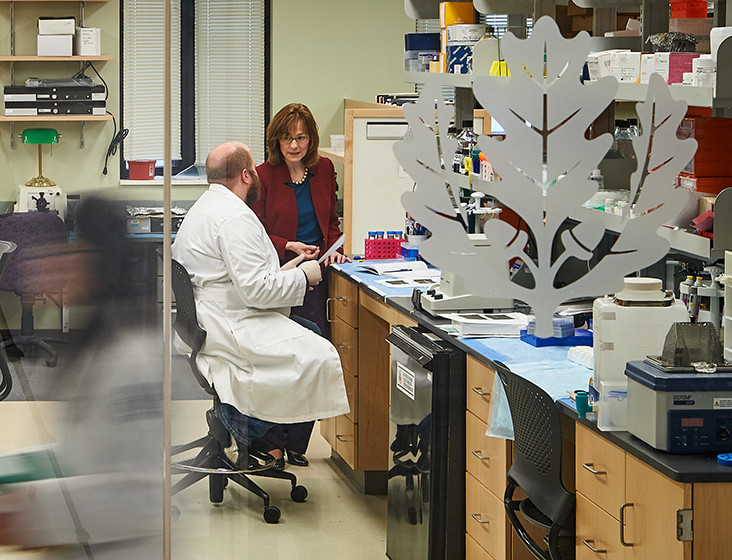
UConn Health Researcher Wins PITCH Promising Project Award for Potential RA Treatment
Caroline Dealy, PhD, a UConn Health associate professor of reconstructive sciences, orthopedic surgery, and cell biology, has received a promising project award from the UConn/Yale PITCH program to study a novel protein with potential as a new treatment for rheumatoid arthritis.
Anna Zarra Aldrich (CLAS '20), Office of the Vice President for Research
Caroline Dealy, PhD, a UConn Health associate professor of reconstructive sciences, orthopedic surgery, and cell biology, has received a promising project award from the UConn/Yale PITCH program to study a novel protein with potential as a new treatment for rheumatoid arthritis.
Rheumatoid arthritis (RA) afflicts approximately 3.2 million Americans, and is a progressive condition that causes pain, stiffness and swelling in the joints that can lead to disabling mobility loss. The clinical challenge of rheumatoid arthritis is that patients often relapse despite treatment with powerful drugs, leading to irreversible destruction of the cartilage and bone of the joints.
Dealy’s team has discovered a naturally-produced biological inhibitor that blocks a key molecular pathway involved in RA disease. With help from the PITCH promising project award, Dealy will continue development of a pharmaceutical version of the inhibitor and evaluate how effective it is at suppressing RA when used as a treatment in mice. According to Dealy, this treatment has the potential to revolutionize the field of RA disease management, as many current therapies have life-threatening side effects or are not effective for some patients.
Dealy has assembled a multidisciplinary group of scientists and clinicians to carry out this project with support from a collaborative program between UConn and Yale University. The Program in Innovative Therapeutics for Connecticut’s Health (PITCH) supports researchers who are working on novel treatments for diseases and helps them develop and commercialize their products through the creation of new Connecticut-based biopharma companies that can address unmet medical needs. The grant will help Dealy advance her research and apply for potential future PITCH support through access to Yale’s resources for drug development, screening and synthetic chemistry to aid her in the development of this treatment.
Dealy received her PhD from UConn in developmental biology. Her research focuses on understanding molecular and cellular signals that control the development and differentiation of the human skeleton, to help develop treatments to regenerate damaged skeletal tissue and cartilage. She is also working with the Connecticut biotechnology startup, Chondrogenics, Inc. on a stem cell treatment for osteoarthritis.
Dealy in her UCH lab (Peter Morenus/UConn Photo)




